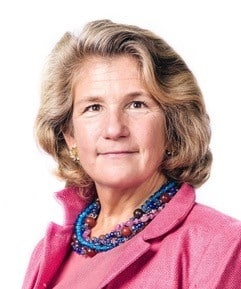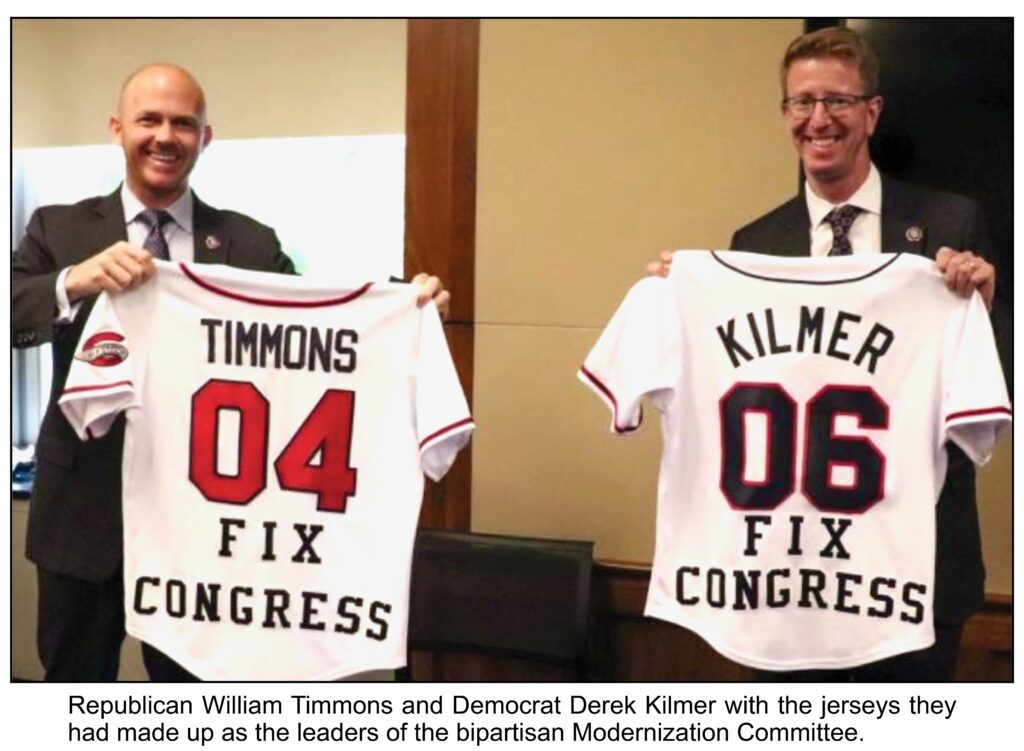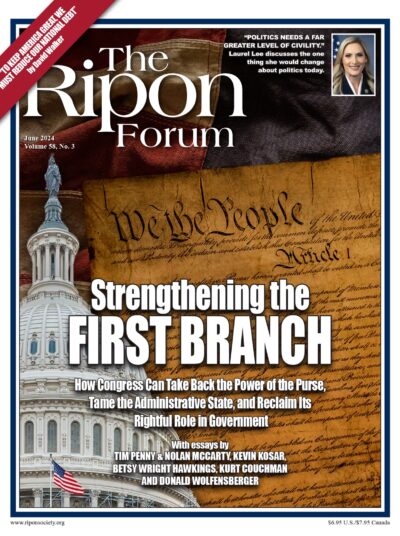
In early 2016, following a year-long study in collaboration with the William and Flora Hewlett Foundation, the Democracy Fund published a systems map diagnosing the drivers of hyper-partisanship undermining a functioning Congress.
It pointed to three significant trends: (1) increased competition for the House and Senate majorities; (2) the nationalization of congressional elections with increased demand for partisan purity hyper-charged by the rise of social media and the collapse of local news; and (3) reduced congressional resources. All have led to diminished congressional capability to solve problems, reduced trust in the institution and even greater disengagement by an already disaffected public.
But the report also laid out a strategy to mitigate the dysfunction: increase the capacity of Congress to legislate and solve problems, upgrade its legislative tools and internal operations, and curb the power the “political industrial complex” has in the institution. Hewlett, Democracy Fund and others focused significant new resources on this strategy, and three years later the House Select Committee on the Modernization of Congress was established “to recommend improvements … to help members of Congress and their staff better serve the American people.” Over four years, its six Republicans and six Democrats reported 202 recommendations – all but two unanimously.
Increased competition for the House and Senate majorities … the nationalization of congressional elections with increased demand for partisan purity … reduced congressional resources. All have led to diminished congressional capability to solve problems.
More than 150 of the recommendations have been fully or partially implemented. They address a broad array of goals: increasing civility and bipartisanship, expanding accessibility to Congress for staff and the public, enhancing opportunities for collaboration, bolstering congressional support agencies, promoting impartial data use and analysis in policymaking, strengthening effective bipartisan oversight capacity, boosting staff capacity and compensation, upgrading district operations, ensuring continuity after a mass casualty, upgrading technology, streamlining the legislative process, reducing committee scheduling conflicts, and improving constituent engagement. Importantly, last year the Committee on House Administration created a permanent Subcommittee on Modernization to ensure implementation of remaining recommendations and an ongoing commitment to improvement – so that “modernization” is no longer something the House thinks about, as it often has, just once in a generation.
Among the most potentially sustainable contributions the “ModCom” made to the House, however, could be how it worked to achieve what it did. It was genuinely bipartisan, with the same number of Republicans and Democrats. (Only the Ethics Committee could previously say that.)
At the initiative of Chair Derek Kilmer, D-Wash., the ModCom was co-led by Vice Chairs Tom Graves, R-Ga., in the 116th Congress and William Timmons, R-S.C., in the 117th Congress. There was a single budget rather than the usual majority-minority split. The Democratic and Republican staff directors shared the same staff. All members met together to receive briefings, set priorities, and refine recommendations before voting. They all worked to agree on a shared understanding of problems, holding retreats early in 2019 and 2021 to set common priorities. This process led to hearings where Democrats and Republicans alternated seating at round tables instead of dividing along party lines on the usual tiered dais, and where the usual rule allocating five minutes to each member for questions was suspended so members could pursue more thoughtful questions. This practice has been continued by the Modernization Subcommittee under Chair Stephanie Bice, R-Okla.
Mr. Kilmer and Mr. Timmons liked to say, “We are all on the same team; we don’t wear red jerseys and blue jerseys, we wear ‘Fix Congress’ jerseys.” (Yes, they had actual “FixCongress” jerseys made). The ModCom’s profile was not high, but those who knew its work felt better about Congress. And despite many indicators to the contrary, according to some assessments, the last four years have produced some of the most bipartisan legislation in decades.
So how can we measure Congress’ capacity to live up to evolving challenges? The Supreme Court may soon force the issue. Its decisions in Loper Bright Enterprises v. Raimondo and Relentless v. Department of Commerce may well increase Congress’ responsibility for detailed policymaking – shifting power that’s been in the executive branch since the court’s 1984 Chevron v. NRDC decision. This shift would require a significantly higher level of legislative capacity than Congress has seen in decades.
As the ModCom showed, operating at a higher level must start with members better knowing one another – not just across the aisle, but also within their caucuses. It also requires ending proxy voting, especially in committees; empowering more nimble support agencies; utilizing committee markups rather than bringing legislation directly to the House floor; conducting fact-based, bipartisan oversight; reauthorizing programs on time; and allowing more amendments debated on the floor under open rules – even if that means “tough votes” for members of both parties. Tracking members’ policymaking success can provide an important incentive to increasing their collective capacity and was a part of the Democracy Fund / Hewlett strategies. One notable effort is The Center for Effective Lawmaking (CEL), a project of the University of Virginia and Vanderbilt University, which developed 15 indicators to assess legislators’ success at advancing their agenda through the legislative process – and, thereby, strengthening Congress’ ability to function.

Operating at a higher level must start with members better knowing one another – not just across the aisle, but also within their caucuses.
Specifically, CEL identifies the number of bills each member sponsored and the number of those bills that received action in committee or beyond. It also identifies how many of those bills passed the House, and how many became law. It categorizes bills as being commemorative, substantive, or “substantive and significant,” based on Congressional Quarterly criteria.
David Leonhardt of The New York Times has, through his reporting, summarized the criteria for a healthy Congress as well as anyone: leaders who negotiate, but not publicly; a cadre in each party willing and able to talk to the other side; a president who keeps talking and does not take things personally; and ideologues willing to be practical and accept less than total success.
Bottom line: We need senators and representatives who prioritize relationships, understand that making our system work requires collaboration and compromise, have the capacity and commitment to develop those relationships, learn policy and negotiate those compromises; and prioritize communicating their value to the American people. We need leaders.
It can be disappointing to see so many members leaving Congress at a time when their expertise is sorely needed. The institution is no better or worse than the people in it, and the power to change it – or not — is in their hands. The job of leaders is to shape the future.
It will take time. But if Congress continues to build on the work of the Modernization Committee, expanding its capacity and expertise to serve the American people, it will make a difference. It can make all the difference.
Betsy Hawkings served as chief of staff to four Republican House members over 25 years and was awarded the Eph Creswell Congressional Staff Leadership Award in 2014. She spent four years leading the Democracy Fund’s Governance Program before opening her own consultancy, Article One Advisors LLC, and was a staff fellow with the Select Committee on the Modernization of Congress from 2020-22.




